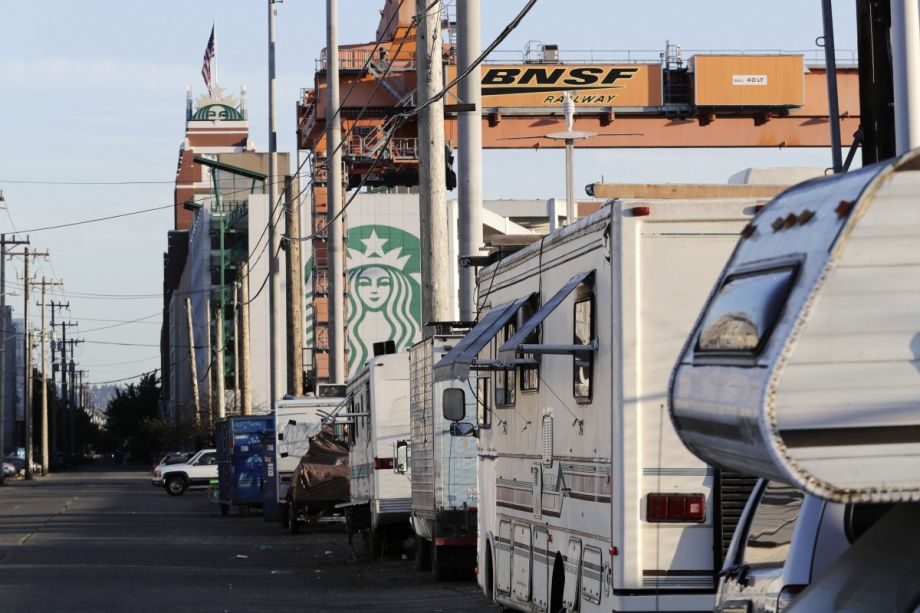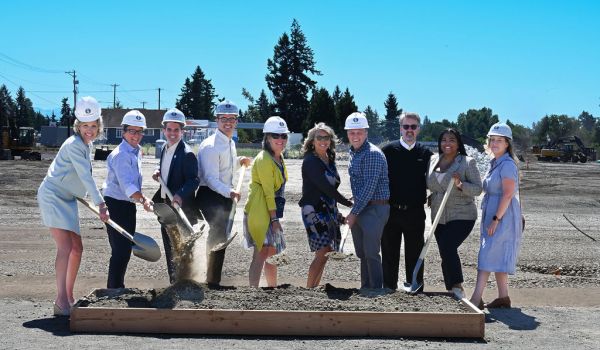Seattle closed out 2018 with over 1,400 affordable housing units in the city’s pipeline for construction and renovation, the largest single-year increase in the city’s history. But it’s still not enough, and the New Year’s celebration has turned sober about the need to find more resources for affordable housing money after a year that saw much-needed revenue sources taken off the table.
In late December, Mayor Jenny Durkan announced the recipients of the city’s annual awards to affordable housing developers. Last year’s total amounted to $75 million of direct investment from city hall, which will go toward ten new buildings totaling nearly 1,200 apartments and preserving an additional 200-some existing units. Winning projects are located throughout the city and include culturally specific efforts like funding for Chief Seattle Club’s new downtown building to house homeless and low-income American Indians and Alaskan Natives.
The funds are a significant investment by national standards. Boston doled out just $25 million last year. Philadelphia committed up to $100 million over the next five years. Washington, D.C. spent a record $167 million from its housing trust fund last year. San Francisco has a $75 million fund on the cusp of depletion.
Locally, the investment feels inadequate to many, as evidenced by the $245 million worth of projects that applied for the city funds. The need is more than evident: The King County Regional Affordable Housing Task Force estimates that greater Seattle needs 156,000 new affordable homes today and greater Seattle’s unsheltered population, the country’s third largest, grew last year while numbers in Los Angeles, the second largest, dropped.
“The announced investments for affordable homes represent good news, but we must recognize it represents a drop in the bucket for what is actually needed in affordable housing capital,” says Councilmember Teresa Mosqueda, who chairs the city council housing committee.
Seattleites on the margins are struggling to find anywhere they can afford to live within city limits. Staying in the city is vital in a region lacking a comprehensive mass transit system. A Seattle address puts people near the epicenter of the enormous Emerald City job machine that is keeping the local unemployment rate under 4 percent.
The existing sources that led to last year’s $75 million funding round are not easily expanded. $29 million came directly from Seattle taxpayers, who approved a seven-year, $290-million housing levy in 2016. Seattle taxpayers are feeling squeezed after the largest property tax increase in the region’s modern history to fund public schools — they are unlikely to increase their already generous contribution through the housing levy.
Another $30 million was part of a community benefits package negotiated ahead of the downtown convention center’s expansion — a one-time deal.
Finally, $16 million came from developer payments through the city’s incentive zoning program. The incentive zoning program depends on private sector investment, where real estate developers have the option of including affordable units in their buildings or paying into the city housing fund. There are signs that Seattle’s warp-speed construction boom might be on the wane — meaning that the existing flow of payments into the city housing fund may slow down soon.
If there’s any hope to keep developer payments flowing, it may be from the potential to expand the city’s incentive zoning program to more neighborhoods. Until now, neighborhood associations in largely single-family enclaves have waged a four-year legal battle over the rollout of the so-called Housing Affordability and Livability Agenda that created the developer payments. With that legal battle in play, only a few neighborhoods so far have been subject to the requirement to either include affordable units in new residential buildings or pay into the city’s housing fund. As a result, the delay has cost the city up to 717 affordable units, according to an Office of Planning and Community Development study. A favorable November 2018 ruling may finally clear the way for citywide implementation
Finally, Seattle’s quickly aborted employee hours tax, also known as the “Amazon tax” or “head tax”, would have raised $45 million per year had the mayor and a majority of the city council not caved to pressure from big business.
That failure frustrates Marty Kooistra, executive director of the Housing Development Consortium, a Seattle-based affordable housing advocacy group, who believes the head tax debate squandered political capital with business, an essential partner for any long-term housing solution.
“To create the system change needed to expand our pool of resources, we can’t get embroiled in debates that isolate certain sectors when a collective cross-sector push is necessary,” he said. “If region-wide affordability is the tide that raises all boats, then we must first dismantle the dam of available resources and expand the flow to meet our collective need.”
For Kooistra, that sense of futility spurs him to look outside city limits to state and federal responsibility, especially given Washington’s status as having the most regressive tax structure in the U.S. with a high reliance on sales and property tax and no state income tax.
As the new legislative session convenes in Olympia, Governor Jay Inslee has proposed a capital gains tax and Kooistra has heard inklings of a possible bump for the state housing trust fund, but such talk remains speculative. A national housing strategy, meanwhile, seems like a pipe dream in the current political climate.
Mosqueda, one of two lone votes opposing the big business tax repeal, said she would push for more progressive revenue sources in 2019 but did not provide details. A spokesperson for the Seattle Office of Housing would not speculate whether or what kinds of new revenue sources for housing are needed, nor on the potential impact of the repealed big business tax.
But for Kooistra, the bottom line is clear: “We need a much larger pie than we have to draw from.”

Gregory Scruggs is a Seattle-based independent journalist who writes about solutions for cities. He has covered major international forums on urbanization, climate change, and sustainable development where he has interviewed dozens of mayors and high-ranking officials in order to tell powerful stories about humanity’s urban future. He has reported at street level from more than two dozen countries on solutions to hot-button issues facing cities, from housing to transportation to civic engagement to social equity. In 2017, he won a United Nations Correspondents Association award for his coverage of global urbanization and the UN’s Habitat III summit on the future of cities. He is a member of the American Institute of Certified Planners.
















